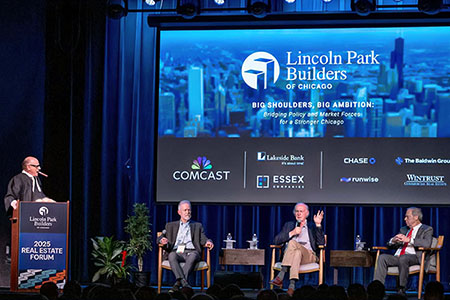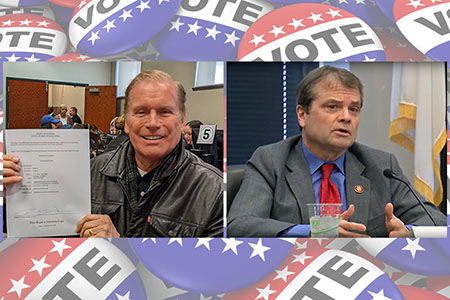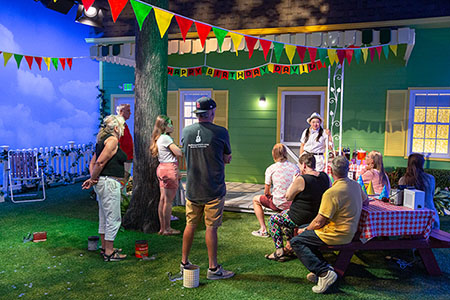
The war between Chicago’s proposed $100 million homeless fund and million-dollar-plus property owners could be headed to the Illinois Supreme Court.
(Above) Unit 6B at 1448 North Lake Shore Drive, on the market for $1 million (MLS Grid / ChicagoCondoHomes.com). Mar. 11, 2024 – Votes on Chicago’s March 19 referendum on the so-called “Mansion Tax” will count, an Illinois appellate court has ruled, overturning a lower court’s decision. The appellate court ruled on March 6 that a previous decision by Circuit Judge Kathleen Burke was invalid because she did not have jurisdiction. The referendum question was unconstitutional and invalid, Burke said. However, three appellate justices ruled Burke’s decision to rule on a referendum that was a legislative issue – not a judicial question – was wrong. The appellate ruling did not weigh in on the merits of the referendum, only the validity of its place on the ballot. “Nothing in this decision is intended to suggest that we have any opinion one way or the other on the merits of the referendum at issue,” the justices wrote. “That is a question wisely entrusted to the people of the city of Chicago.” Voters have until March 19 to decide whether they want a hike in the real estate transfer tax that is intended to raise $100 million to help the homeless. 2nd Ward Alderman Brian Hopkins, one of the most outspoken critics of the transfer tax change – that would greatly increase fees charged for buying a million-dollar-plus property – said that the real estate industry’s best chance to defeat the binding referendum was through the court system, not the ballot box. So, the next step to block the Mansion Tax may be the Illinois Supreme Court.
According to the Illinois Policy Institute, an independent taxpayer advocacy organization, nothing outlined in the referendum guarantees that the new transfer tax funds actually will go to solving the problem of homelessness.
Here are the facts outlined on the March 19 referendum ballot:
The rates would be applied incrementally, meaning a property selling for $2 million would be taxed at 0.60 percent on the first $1 million, 2 percent on the next $500,000, and 3 percent on the balance over $1.5 million. The current Chicago transfer tax calls for the buyer to pay a flat 0.75 percent, or $7.50 per $1,000 of sale price. Sellers pay $3 per $1,000 of the property’s value, along with $1.50 per $1,000 to the State of Illinois and $0.50 per $1,000 to Cook County. While proponents have dubbed the new transfer tax proposal the “Mansion Tax,” relatively few homes sell for $1 million or more in Chicago. Most of those are in the downtown area and along the north lakefront. Most of the proposed transfer tax bite will hit owners of commercial and apartment properties, which sell nine times more often than residences above the $1 million threshold targeted by the tax hike, according to the Illinois Policy Institute. “There are 5,142 commercial properties in the city which would be vulnerable to the hike if sold, thwarting new business starts that could offer jobs to truly get homeless Chicagoans off the streets,” according to an Illinois Policy study. Opponents of changing the tax structure include Building Owners and Managers Association of Chicago, Chicagoland Apartment Association, Illinois REALTORS, and Neighborhood Building Owners Alliance. Tax hike could curtail affordable housing Some real estate experts say the proposed transfer tax hike could eventually backfire to actually reduce the city’s affordable housing stock. Thousands of small apartment buildings are owned by “Ma and Pa” middle-class and senior citizens, who frequently charge under-market, affordable rents. While a growing number of those properties may be valued at more than $1 million, the buildings really represent the middle-class owner’s retirement nest egg. It may be most of their own family’s wealth and security. Although the biggest chunk of the proposed tax would be paid by the buyer, it could lower the seller’s net sales price by tens of thousands of dollars. The luxury tax likely will lower prices and reduce sales volume, especially in north lakefront neighborhoods such as Edgewater, Gold Coast, Lake View, Lincoln Park, Near North Side, and Old Town, according to Illinois REALTORS. If the Mansion Tax proposal is voted in via referendum, and the Chicago City Council approves it, experts say Cook County Assessor Fritz Kaegi may have to institute a new model for assessing million-dollar-plus homes to compensate for falling market values and the hefty burden of the added layer of taxes. In the end, the whole effort may result in a shifting of property taxes away from traditional taxpayer-supported entities – schools, libraries, parks, streets and sanitation, etc. – and into the Mayor’s Office. And how he will actually spend it is still a mystery.
One wonders if this is where the money will really end up going. One tip-off of a potential bait and switch on this tax scheme might be that after the March 19 vote, if the referendum passes, we suddenly start hearing narratives about “teachers not being able to afford housing,” then that may be a leading indicator that the CTU’s membership may be the intended benefactors of the new tax haul. |
















